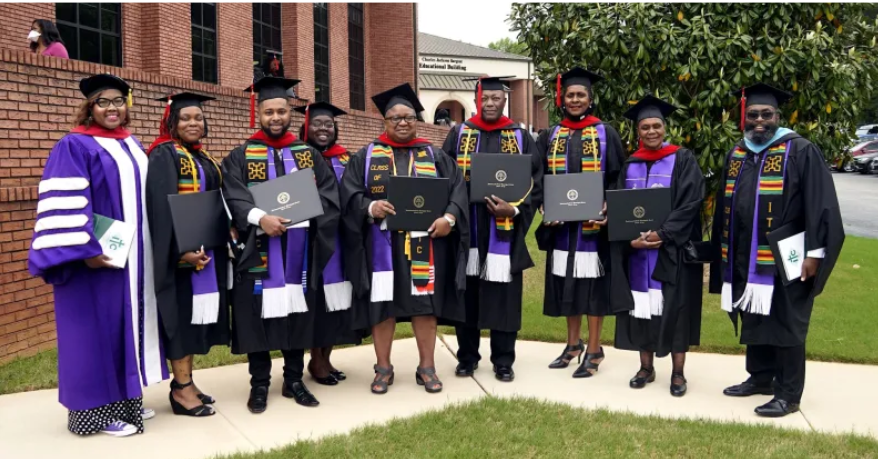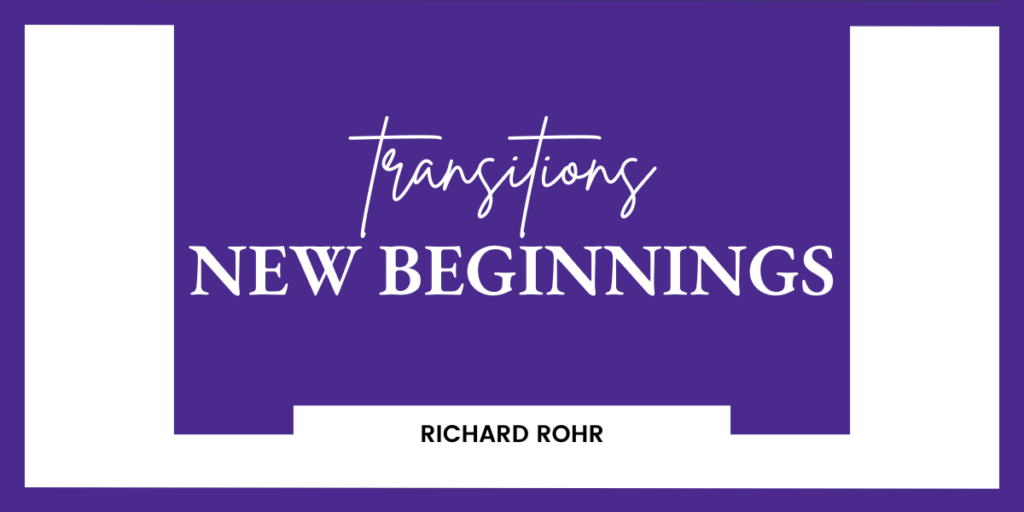On April 14, 2023, The Interdenominational Theological Center (ITC) Board of Trustees declared financial exigency, effective immediately. ITC’s President Matthew Williams expressed, “This painful but necessary decision to declare financial exigency was made after a thorough review of the institution’s current financial situation, continued historical challenges, and projections for the future.”
In light of the exigency declaration of the Interdenominational Theological Center last week, Gammon Theological Seminary will remain open, exploring viable options and continuing our 140-year commitment to theological education in the United Methodist Church.
Dr. Candace M. Lewis, Gammon’s 17th President and Dean, said, “Gammon remains financially solvent and envisions emerging more vital than before. Gammon’s history and impact upon the Methodist Church is significant yet not widely known.”

Gammon graduates continue to serve on every level of the United Methodist Church as Bishops, Superintendents, Conference Leaders, Pastors, and Laity. In addition, Gammon holds the distinction of training and graduating the most significant number of Ebony Bishops elected to serve the United Methodist denomination.
Lewis acknowledged, “Gammon’s enrollment has been in decline over the last few years,” yet she remains confident in the leadership of the current Staff, Trustees, Alumni, and the broader community. “Since this announcement we have connected with GBHEM and other United Methodist Seminaries, offering their resources and support as we assist our current seminarians in navigating the unexpected disruption and consequences of exigency.”
Dr. Greg Bergquist, General Secretary of GBHEM, affirmed, “GBHEM has a longstanding historical relationship with Gammon Theological Seminary and will continue to support Gammon now and into the future. As the only Historically Black Theological Institution (HBTI) of the United Methodist Church in the United States, Gammon provides a culturally unique theological experience that is vital for the life of the church and society. GBHEM will stand with Gammon Theological Seminary and Rev. Dr. Candace M. Lewis, president, as they adapt to the ever-changing theological landscape in the world today.”
Gammon is our denomination’s only historically black theological institution among the thirteen affiliated theological institutions. Gammon was founded in 1883, almost twenty-years after the Emancipation Proclamation, which ended the enslavement of Black people in America. In partnership with the Freedman’s Aid Society, Gammon committed to training black clergy to serve this newly emancipated race of people. Gammon operated as an independent seminary for seventy-five years from 1883 to 1958, training Black Clergy during a time in our nation when no other Methodist Seminary would admit black students due to legalized segregation. Gammon was instrumental in 1958 in the creation of the Interdenominational Theological Center, a consortium of black denominational schools, lending its [Gammon’s] accreditation, choosing to partner together, sharing resources, and educating seminarians. Gammon has been a part of the ITC for 65 years and has graduated thousands of prophetic leaders committed to the rectification and redemptive work of the kingdom of God through the liberating gospel of Christ to all God’s people.
In truth, Gammon Theological Seminary stands solvent and poised at this hour. The ability to garner resources and train leaders for the ever-changing theological landscape is highlighted in Gammon’s rich history and legacy of innovation. These competencies and the connectional culture of the United Methodist denomination truly demonstrate Gammon’s promising “Brand New Day” and its immense ability to train current leaders for the church’s future and reinvent to meet the needs of the ministry landscape in our ever-evolving world.
Bishop L. Johnathan Holston, Chair of the Gammon Board of Trustees and a proud alumnus, concludes by sharing, “Gammon Theological Seminary has prepared and equipped many generations of leaders for the church and beyond. Yet, even as we celebrate the significance of all Gammon has accomplished over a century, we know that the best is yet to come. In light of the recent declaration of financial exigency from the Interdenominational Theological Center, we assure you that Gammon continues the journey toward our vision of a Brand New Day.’”

ITC Prepares for New Era, Focusing on Fundraising Initiatives and New Path Forward
Atlanta, GA – On April 14, 2023, The Interdenominational Theological Center (ITC) Board of Trustees declared financial exigency, effective immediately. Financial exigency is a term used by institutions to indicate a state of significant financial crisis that requires immediate and significant corrective action to ensure the sustainability of the institution.
It’s important to note that ITC is NOT CLOSING. This is a difficult and challenging time for everyone in the ITC community. However, we are committed to transparency and open communication throughout this process and will provide regular updates as we move forward towards creating an institutional strategy that is fully sustainable, with the plan to “REBOOT” as a strong, fiscally healthy, and responsible institution. We must, at last, bring an end to an unsustainable model which has generated a spin-cycle of institutional crisis. Our shared calling to the mission of this beloved institution requires this courageous action.”
ITC President Matthew Wesley Williams
This painful but necessary decision to declare financial exigency was made after a thorough review of the institution’s current financial situation, continued historical challenges and projections for the future. The COVID-19 pandemic had a significant impact on ITC, as it has on many other institutions across the country.

The word change normally refers to new beginnings. But the mystery of transformation more often happens not when something new begins, but when something old falls apart. The pain and chaos of something old falling apart invite the soul to listen at a deeper level, and sometimes force the soul to go to a new place. Most of us would never go to new places in any other way. The mystics use many words to describe this chaos: fire, dark night, death, emptiness, abandonment, trial, the Evil One. Whatever it is called, it does not feel good, and it does not feel like God.
We will normally do anything to keep the old thing from falling apart, yet this is when we need patience and guidance, and the freedom to let go instead of tightening our controls and certitudes. Perhaps Jesus is describing just this phenomenon when he says, “It is a narrow gate and a hard road that leads to life, and only a few find it” (Matthew 7:14). Not accidentally, he mentions this narrow gate and hard road right after teaching the Golden Rule. He knows how much “letting go” it takes to “treat others as you would like them to treat you” (Matthew 7:12).
Spiritual transformation always includes a disconcerting reorientation. It can either help people to find new meaning or it can cause people to close down and slowly turn bitter. The difference is determined precisely by the quality of our inner life, our practices, and our spirituality. Change happens, but transformation is always a process of letting go, and living in the confusing, shadowy, transitional space for a while. Eventually, we are spit up on a new and unexpected shore. We can see why Jonah in the belly of the whale is such an important figure for Jews, Christians, and Muslims.
In moments of insecurity and crisis, shoulds and oughts don’t really help. They just increase the shame, guilt, pressure, and likelihood of backsliding into unhealthy patterns. It’s the deep yeses that carry us through to the other side. It’s those deeper values we strongly support—such as equality and dignity for all—that allow us to wait it out. Or it’s someone in whom we absolutely believe and to whom we commit. In plain language, love wins out over guilt any day.
It is sad that we settle for the short-term effectiveness of shaming people and shutting them down, instead of the long-term life benefits of true transformation. But then, we are a culture of productivity and efficiency, not terribly patient or even open to growth. God is clearly much more patient—and, finally, much more effective, patiently supporting our inner transformation through all of life’s transitions.